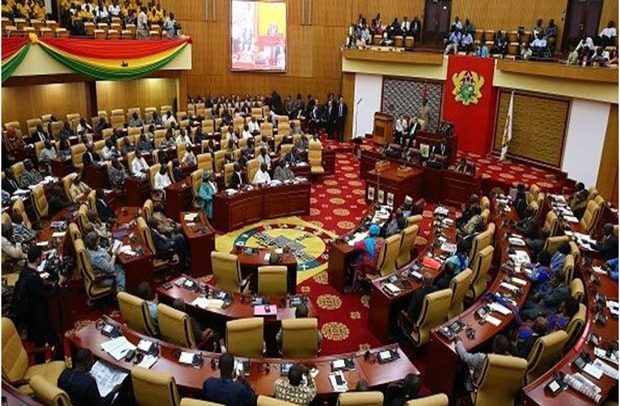Parliament has passed the Ghana Medical Trust Fund Bill, 2025, popularly dubbed the Mahama Cares Bill, under a certificate of urgency, despite objections from members of the Minority Caucus, who argued that the initiative duplicates the role of the National Health Insurance Scheme (NHIS) and serves more political than economic interests.
The bill seeks to establish the Ghana Medical Trust Fund as a statutory body to provide financial support for specialised medical care, particularly for patients suffering from chronic non-communicable diseases (NCDs) such as cancer, stroke, kidney failure, diabetes, and cardiovascular conditions. These illnesses reportedly account for over 40% of all-age mortality in the country.
According to a memorandum accompanying the bill, the government intends the Trust Fund to serve as a dedicated financing vehicle for improving specialist healthcare delivery, especially in underserved and rural communities. The Fund will draw resources from multiple sources, including 20% of the total allocations to the National Health Insurance Fund (NHIF), direct budgetary allocations approved by Parliament, voluntary contributions, investments, grants, and donations.
The Health Committee, which reviewed the bill, recommended its consideration under a certificate of urgency, citing the pressing need to address the growing burden of NCDs and to bridge the current funding and access gap in the country’s healthcare system.
The Committee also highlighted that many specialist-level treatments remain outside the coverage of NHIS, leaving patients and families to bear devastating out-of-pocket costs that often drive households into poverty within five years of diagnosis.
However, the Minority expressed strong reservations about the bill’s urgency and core objectives. They argued that the NHIS is already mandated to cater to health needs, and reallocating 20% of its funding to a parallel structure could jeopardise its sustainability.
Ranking Member on the Health Committee, Dr. Nana Ayew Afriyie, described the bill as “more of a political decision than an economic one.”
He noted that the Minority could not support the use of NHIA funds for the new initiative, citing legal and procedural concerns.
“With your guidance, the Minority, as far as this provision is concerned, ‘3(a)’, we abstain. Regardless of the position of my colleagues, we would want to progress by taking due notice that we don’t support monies being taken from the NHIA. That entire provision, 20% of total monies, we are opposed to,” Dr. Ayew Afriyie stated.
He further argued that there are inconsistencies between the proposed allocation and existing legislation, particularly Act 852, which governs the operations of the NHIA. According to the Ranking Member, the allocation risks violating provisions in the Act that define how NHIA funds should be utilised.
“We don’t also have clarity and until those [inconsistencies] are addressed, we are not supporting this clause. We are not,” he said.
Joining the Minority’s reservations, Ofoase-Ayirebi MP and former Minister for Works and Housing, Kojo Oppong Nkrumah, cautioned the House about potential breaches of the Public Financial Management Act (PFMA), 2016 (Act 921).
He raised concern that the bill was being pushed without the necessary fiscal impact assessment required under Section 100 of the PFMA.
“Any legislation to be laid before Parliament… shall be accompanied by a fiscal impact analysis stating the estimated effect on revenues and expenditures,” he quoted and added, “When you take out 20% of total monies allocated to the NHIA, that fund is now depleted by 20%, which they would have already programmed for in their medium-term framework.”
He stressed the need for Parliament to demand clarity from the NHIA on how it plans to fill the funding gap created by the redirection of resources to the new trust fund.
“Even as the Ranking Member says we will not participate in a vote on this clause, we provide this information to guide the House. What you are doing is leaving a number of holes that are unplugged,” Oppong Nkrumah said.
Concerns also emerged about the procedural legitimacy of the Health Committee’s urgency recommendation. The Minority questioned the signature of the Committee Chair, Dr. Robert Kuganab-Lem Nawaane, on the urgency report, suggesting internal disagreements over whether the bill merited fast-tracking.
Despite the Minority’s objections, the bill proceeded to its second reading and subsequent passage under a certificate of urgency, with the Majority citing the national health emergency posed by chronic diseases and the urgent need for intervention.
The Mahama Care Bill lays out comprehensive provisions for the establishment and management of the Fund. Clause 1 establishes it as a corporate body, while Clause 2 outlines its objective — to mobilise and apply financial resources for specialised medical treatment of chronic illnesses. Clause 3 details its funding sources, which include statutory allocations, grants, and voluntary donations.
Clause 4 vests management of the Fund in a Board of Trustees, which will oversee a dedicated bank account approved by the Controller and Accountant-General. Clause 5 specifies the uses of the Fund, including providing direct support to patients, investing in specialist training, research into chronic diseases, and infrastructure development in specialist healthcare delivery.
As part of its rollout, the government has committed to investing $59.7 million over three years to expand healthcare infrastructure, establish a national NCD registry, and decentralise specialist services across the country. The annual operational cost of the initiative is estimated at GH¢3 billion.
By Ernest Kofi Adu, Parliament House


